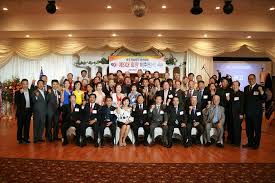CA
ON
토론토 기쁨이 충만한 교회
전화: 416-663-9191
1100 Petrolia Rd Toronto, ON

싸인건설
전화: 416-909-7070
4065 Chesswood Dr. North York, ON
0.jfif)
놀부 - 한식/일식/중식
전화: 416-221-4700
3 Elmhurst Ave, North York, ON

한인 시니어 탁구협회
전화: 647-209-8933
1100 Petrolia Rd Toronto, ON
4.jpg)
토론토 민박 전문집
전화: 416-802-5560
Steeles & Bathurst ( Yonge) Toronto, ON

호남향우회 (토론토)
전화: 647-981-0404
7 Bishop Ave. #2411 Toronto, ON

골프 싱글로 가는길
전화: 647-291-2020
115 York Blvd Richmond Hill Toronto, ON

최고의 POS시스템 - 스마트 디지탈 POS
전화: 416-909-7070
4065 CHESSWOOD DR. NORTH YORK Toronto, ON
0.jfif)
조준상 (로열르페이지 한인부동산 대표)
전화: 416-449-7600
1993 Leslie St. Toronto, ON

행복부동산 -수잔정 Home Standards Brickstone Real
전화: 647-866-7878
180 Steeles Ave W Unit 30, Thornhill, ON

스마트 디지탈 프린팅 - 인쇄 및 디자인
전화: 416-909-7070
4065 chesswood dr. Toronto, ON
.jfif)
1004열쇠
전화: 416-895-1004
4 Blakeley Rd. Toronto, ON

It would be a place where all the visitors including me share the life stories and experiences through their activities,especially on life as a immigrant.
Why don't you visit my personal blog:
www.lifemeansgo.blogspot.com
Many thanks.
블로그 ( 오늘 방문자 수: 92 전체: 267,303 )
현금대신 E-Cash 가 통용되는 일본
lakepurity
2005-12-12
우리가 살아가는 사회가 너무나 급속히 발전하여, 다 이해를 못하고 살아가는 경향이 많은데, 오늘자 Washington Post는, 현금대신 셀폰안에 들어 있는 E- Cash가 일본인들 경제구조에서 널리 보급되여 상용되고 있다는, 이곳 사회에서 살고 있는 우리도 곧 그속에 합류하게 될것으로 예측되는 기사가 있어 옮겼읍니다. 단 이곳에서 그 시스템을 도입하여 사용하기에는 아직 풀어야할 숙제가 있다고 단서를 부쳤는데, 일본 사회는 이곳 사회와 달라서, 범죄가 훨씬적어( 일예로 길가에 떨어져 있는 지갑이 그대로 길위에 있거나, 또는 본인에게 원형 그대로 되돌려 진다) 보안에 대한 방비책이, 이곳에서 사용되기에는, 허술하기 때문이라고 논평했군요.
Japan Puts Its Money on E-Cash
While Saving Time, Consumers May Spend More
일본인들, 현금대신 E-Cash 사용으로 시간절약과 소비 증가.
By Anthony Faiola
Washington Post Foreign Service
Monday, December 12, 2005; Page A01
TOKYO -- Toru Nashimoto, a trim 36-year-old with nary a coin in the pockets of his slick pinstripe suit, confidently strode toward the cashier at a bustling sushi bar to settle his $45 lunch tab. He whipped out a thin electronic card and placed it above a scanner that quickly blinked neon blue before emitting a computerized ka-ching.
It was the telltale sound of Japan's new electronic money. In seconds, Nashimoto had paid for his meal of sea urchin, eel and raw fish and was hustling back to work. No change from the cash register, no waiting for confirmation, no pin code to enter. "Who needs to carry real money?" said the commercial real estate manager. "I often don't even carry a wallet with me anymore."
Some cell phones, embedded with new technology, carry so-called electronic money and can be used to make purchases in Japan. E-money can also be kept on smart cards. (By Itsuo Inouye -- Associated Press)
Nashimoto is part of the latest trend in Japan, where society is rethinking commerce by doing away with the increasingly arcane concept of cash.
Technology analysts say the use of electronic money amounts to a leap forward in commerce and shopping. Using cell phones that transmit infrared signals -- or, as in Nashimoto's case, a smart card that doubles as a set of electronic keys and lets him earn airline miles with each use -- Japanese consumers are whisking through checkout lines, buying everything from sushi to furniture without ever yanking out their wallets.
Users can add value to their cards or cell phones at thousands of automated docking stations around the country, where they insert paper money and get credit for e-cash. They can also use credit cards to replenish e-cash on the Internet.
Electronic money emerged four years ago as a convenient tool for fast-paced train commuters. The Japan Research Institute, an economic research group, estimates that at least 15 million people here are now using e-cash, a figure projected to reach 40 million -- about one in every three Japanese -- by 2008. The number of e-cash transactions reached 15.8 million per month in 2005, more than double last year's figure, according to Japan's two largest electronic money providers.
E-cash is being accepted at convenience stores, department stores, cafes, restaurants, newsstands and electronics retailers -- enabling users to go shopping carrying nothing but their cell phones. At some supermarkets, up to 40 percent of all purchases are made with electronic money.
Vending machines that dispense sodas and snacks with a flash of a cell phone are popping up on street corners and inside office buildings across Japan. Tokyo's subway system -- the world's second busiest after Moscow's -- will begin accepting electronic money next year. Experts cite the rise of e-cash as a reason for a drop last July in the circulation of yen coins, the first decline since 1971.
"Japan is moving toward the cashless society," said Makoto Yamada, an executive at bitWallet Inc., operator of Japan's largest virtual money service and a partnership jointly owned by the Sony Group, the Toyota Group, All Nippon Airways, two large Japanese banks and NTT DoCoMo, Japan's largest cell phone operator. "Electronic money is taking us there."
The smart cards and phones used are embedded with antennas and integrated circuit chips that allow the devices to receive and emit electronic signals. When the devices are placed near a scanner at a checkout, for instance, a signal is emitted and e-money is deducted.
Similar electronic money concepts are being tried in North America and Europe. Analysts say the Japanese version requires some fine-tuning before it can be exported.
Many note that the idea works well here partly because concerns about safety and security are quite low -- in Japan, even lost wallets are often returned to their owners intact. So the loss of a card or a cell phone loaded with hundreds of dollars of e-cash represents a comparatively small risk.